Iran Announces Third Public Execution Sentence In Less Than A Month
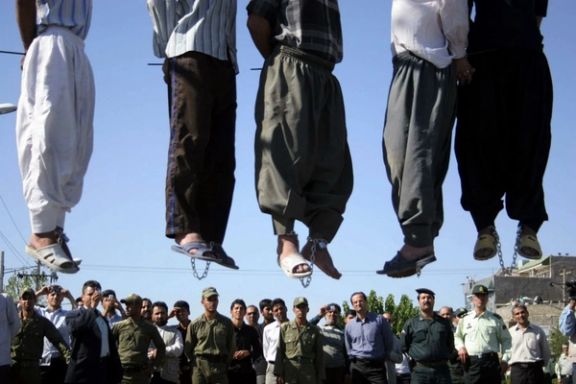
An Iranian official says a person has been sentenced to be executed in public, the third such penalty to be handed down in the country in less than a month.

An Iranian official says a person has been sentenced to be executed in public, the third such penalty to be handed down in the country in less than a month.
The prosecutor in the western city of Khorramabad announced that a defendant was sentenced Sunday to be hanged in public for the alleged killing of a police officer in December 2021, according to the U.S.-based Human Rights Activists News Agency (HRANA).The official, Darioush Shahounvand, didn’t disclose the name of the person sentenced.In late March, a court in the central province of Esfahan sentenced two other people to be publicly executed for the killing a police officer in November 2021.Iran had halted public executions for about a year and a half due to Covid-19 restrictions.According to the Iran Human Rights Organization, at least 111 people have been executed in Iran since the beginning of 2022.The founder of the Norway-based group, Mahmood Amiry-Moghaddam, has rejected claims by Iranian official that public executions are a “deterrent”, arguing that the practice creates a "cycle of violence" in society and aims to "intimidate the people".Amnesty International said in its annual review of the death penalty published a year ago that Iran executed at least 246 people in 2020, remaining the world’s second top executioner after China.Other countries using the death penalty included Egypt, Iraq, and Saudi Arabia, North Korea, Syria and Vietnam.
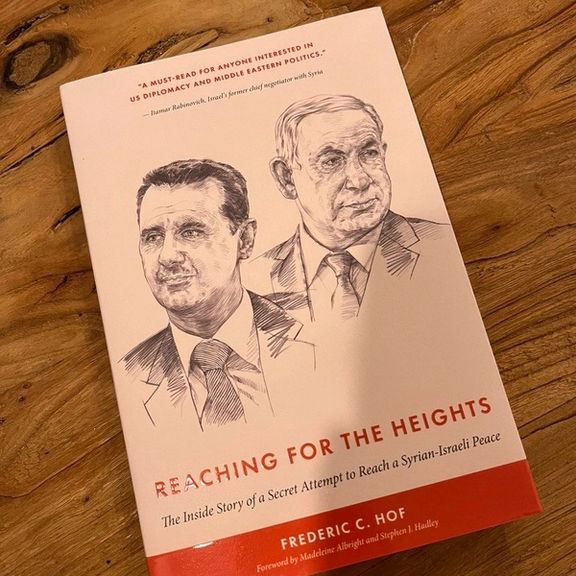
A former US envoy has said Tel Aviv and Damascus were close to reaching a peace deal that would cut Iran out when the Syrian civil war broke out in March 2011.
The Israeli newspaper Haaretz reported on Sunday that the Obama administration was engaged in a covert attempt to mediate between Israel and Syria, a move that was cut short due to the war in Syria.
In a book published earlier in April, former US special envoy to Syria Frederic C. Hof said that the initiative had a promising track, with Syrian President Bashar Assad and then Israeli Prime Minister Benjamin Netanyahu showing willingness to reach a peace agreement during their meetings.
Hof, who worked on Syria-related matters in the US Department of State from 2009 until 2011, said such an accord would have seen Israel leaving the Golan Heights in return for Syria severing ties with Iran and the Lebanese militant group Hezbollah.
The two neighbors have been locked in a war since the establishment of Israel in 1948. Israel captured Golan from Syria in the 1967 Six-Day War and effectively annexed the territory in 1981 in a move not recognized by most of the international community.
Attempts to achieve peace between Israel and Syria have failed mainly due to Damascus’s support for Hezbollah in Lebanon and Hamas militants in the Gaza Strip.
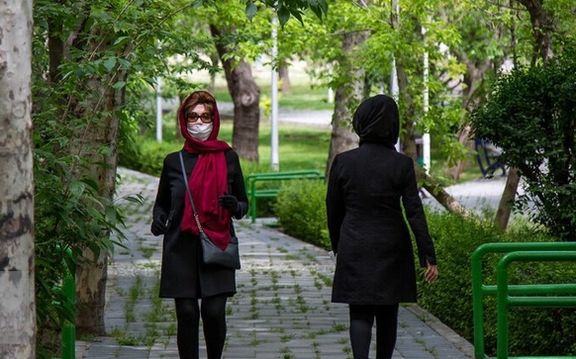
A Tehran City Council member has confirmed that areas in 350 parks and playgrounds in Tehran will be fenced to keep women and their children out of men's sight.
Confirming the plans, Mohammad Aghamiri told Didehban-e Iran website on Saturday that there are "men who are not family members and young [unmarried] men" in parks so it is to women's own benefit to keep men out from where they play with their children. He also claimed that creation of a separate area for women and their children was based on "popular demand".
Those who advocate allocation of a different section of parks and other public areas such as playgrounds to women claim that this will help guard women's privacy and separation from men according to Islamic values.
Limitations for women have always existed since the 1979 Islamic Revolution under the pretext of protecting them, Niki Mahjoub, journalist, told Iran International TV, adding that segregation laws have steadily increased, particularly in the past few years.
Some fear that religious hardliners might be aiming at more segregation in parks and other public places.
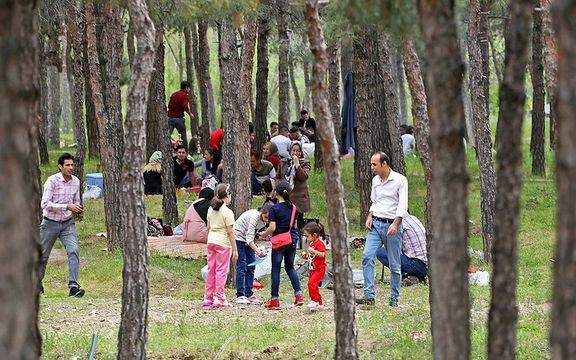
Addressing a Tehran City Council meeting on Sunday, Aghamiri claimed that Didehban-e Iran had misrepresented his remarks and that he had not meant complete segregation of parks but meant only allocation of a special place for women and their children to play together.
He insisted that the plan ensures "women's safety" and giving them peace of mind that their children would not be "abducted". He went on to claim that women are far less likely to abduct children than men.
"There are special parks for children in all countries but now that this is being done in Tehran those who are hostile [to Islamic values] are painting a dark picture and saying parks are going to be segregated," he said.
Aghamiri added that mother and child parks will help make families happier and healthier. "Men are at work during the day. Mothers who have more free time can go to these parks and spend time with their children," he said.
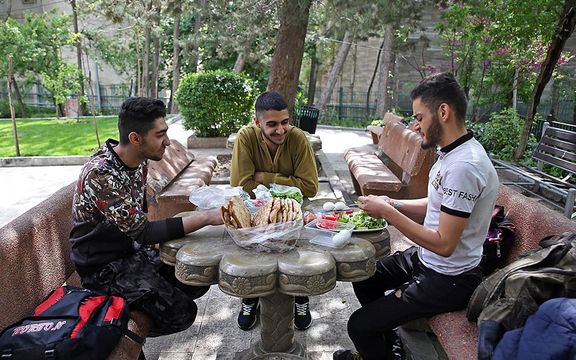
Tehran has over 2,500 large and small parks and neighborhood playgrounds including nine parks that are for women only. Aghamiri said on Sunday that the number of all-female parks is going to increase to forty soon.
The first of all-female parks opened in Tehran was inaugurated by the city's conservative mayor, Mohammad Ghalibaf, in 2008. Some women at the time welcomed the idea because in this park they did not have to wear the compulsory hijab and could dress or exercise as they wished, as even gardeners were female. Others, however, said they feared this was a prelude to greater gender segregation in the city.
Since 2008 all-female parks have also been established in other cities and towns.
On Saturday a video was posted on social media showing tall concrete walls built around a park by the municipality in Bojnord in northern Iran. The mayor of Bojonord has said that the walls have been built not to segregate men and women, but to provide "a safe space" for women.
The Islamic Republic enforces complete segregation of men and women in many public spaces including schools, public transportation, gyms, swimming pools, and beaches. Women are allowed at some athletic events such as volleyball games, in a separate part of the stadium, but unofficially banned from others such as football stadiums, men's wrestling competitions and boxing matches.
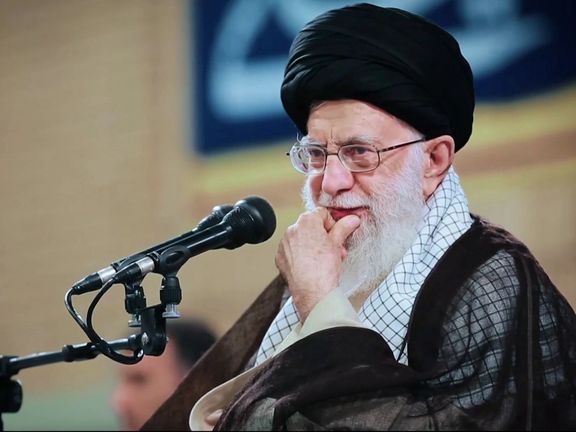
Iran’s Supreme Leader Ali Khamenei has outlined the general policies for a social security system as the country is grappling with a grave economic situation.
In a proclamation sent to the heads of Iran’s three branches of power and the Expediency Council on Sunday, Khamenei on Sunday issued the policies aimed at improving social welfare, removing poverty, and supporting the vulnerable strata of the society in compliance with the first clause of Article 110 of the Iranian Constitution.
He ordered the presidential administration to cooperate with the parliament and the judiciary and mobilize all the relevant entities to provide a comprehensive plan for the implementation of these policies, including legislation, devising regulations and necessary executive measures, within six months.
Khamenei’s directive is a brief and general guideline issuing a series of orders that is meant to expand services to underprivileged people living in urban and rural areas.
In his decree, Khamenei called for establishing a comprehensive, integrated, transparent, efficient and multi-layered social security system, as more reports emerge of deepening poverty amid a 40-percent inflation rate.
The policies include reforming subsidy schemes, promoting job creation, providing all members of the community with access to social services and public resources, and paradoxically offering fertility services to increase the population growth rate.
The directive makes no mention of needed financial resources to expand the social security net. The Islamic Republic has for years provided general energy and food subsidies, but its centrally controlled and closed economy has stifled growth and made it vulnerable to oil export sanctions.
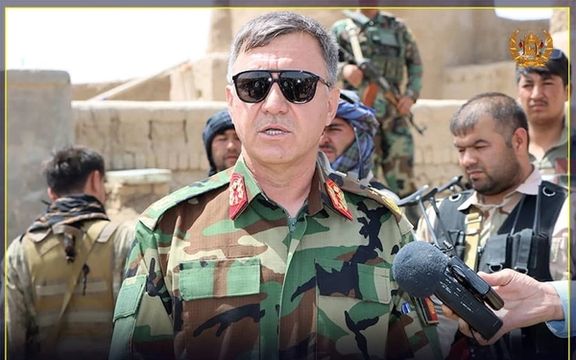
A website close to Iran’s intelligence circles has confirmed reports that security forces arrested a former Afghan official on charges of recruiting fighters for Ukraine.
In an article published on Sunday, Mashregh News confirmed a report that Mohammad Hashim Raees, the former governor of Afghanistan’s Jowzjan province, was arrested on March 19 during a trip to Iran following a meeting with some Afghan refugees.
Mashregh News said Raees was a close friend of Abdul Rashid Dostum, a former Marshal in the Afghan National Army who was an enemy of Taliban and was recruiting Afghans in Iran without giving any details about the recruitment.
However, the Persian website of the Independent had quoted an unnamed source that Raees was arrested in Tehran because he wanted to recruit fighters among Afghans residing in Iran and send them to Ukraine as a unit to fight against the Russians.
The report claimed that Iranian security forces also confiscated more than $300,000 from Raees, noting that it was not clear whether this money was his personal funds or was intended to be used for other purposes.
According to the Independent, Raees promised the Afghan expatriates that they would receive Ukrainian citizenship at the end of the war, along with a handsome amount of money.
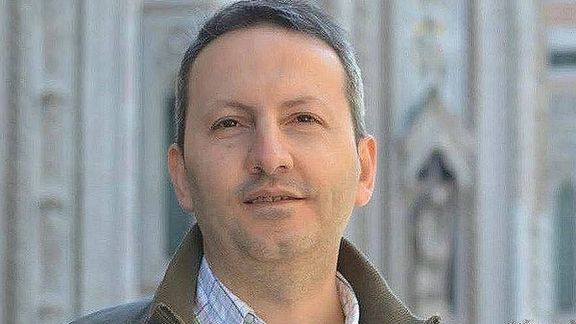
A Swedish-Iranian scientist sentenced to death in Iran has reportedly been assaulted by prison officials in Tehran, a human rights group reported Saturday.
Amhmadreza Djalali (Jalali) traveled to Iran in 2016 on the invitation of Tehran University and was arrested by security forces on accusations of espionage for Israel and later sentenced to death. He is one of several dual nationals held on trumped-up charges who are used as bargaining chips against Western countries.
Two British dual nationals were released in March in exchange for the payment of more than $500 million owed to Iran by the United Kingdom. Others in the past were released for money or in exchange with Iranian agents jailed abroad.
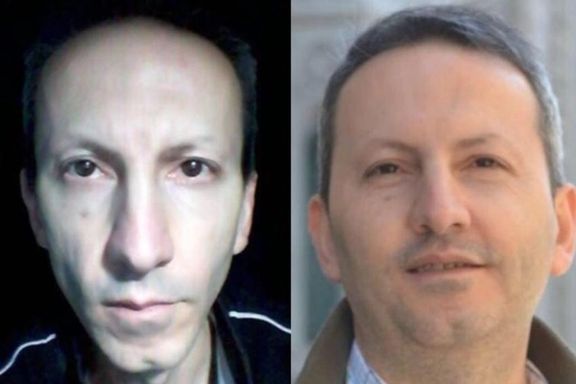
Iran Human Rights Organization based abroad, said information received from political inmates in Tehran’s Evin prison, indicated that Djalali realized infirmary personnel had “stolen” his medications and went to enquire. The prison officials assaulted him on April 4 and he received wounds in the incident.
Djalali, who is not allowed to communicate with his family or friends, suffers from several illnesses and his physical condition has deteriorated after years of mistreatment in jail.
There were reports last year that the Islamic Republic was interested to exchange Djalali with Hamid Nouri, a former Iranian prosecutor who is on trial in Sweden for taking part in mass killings of prisoners in 1988.